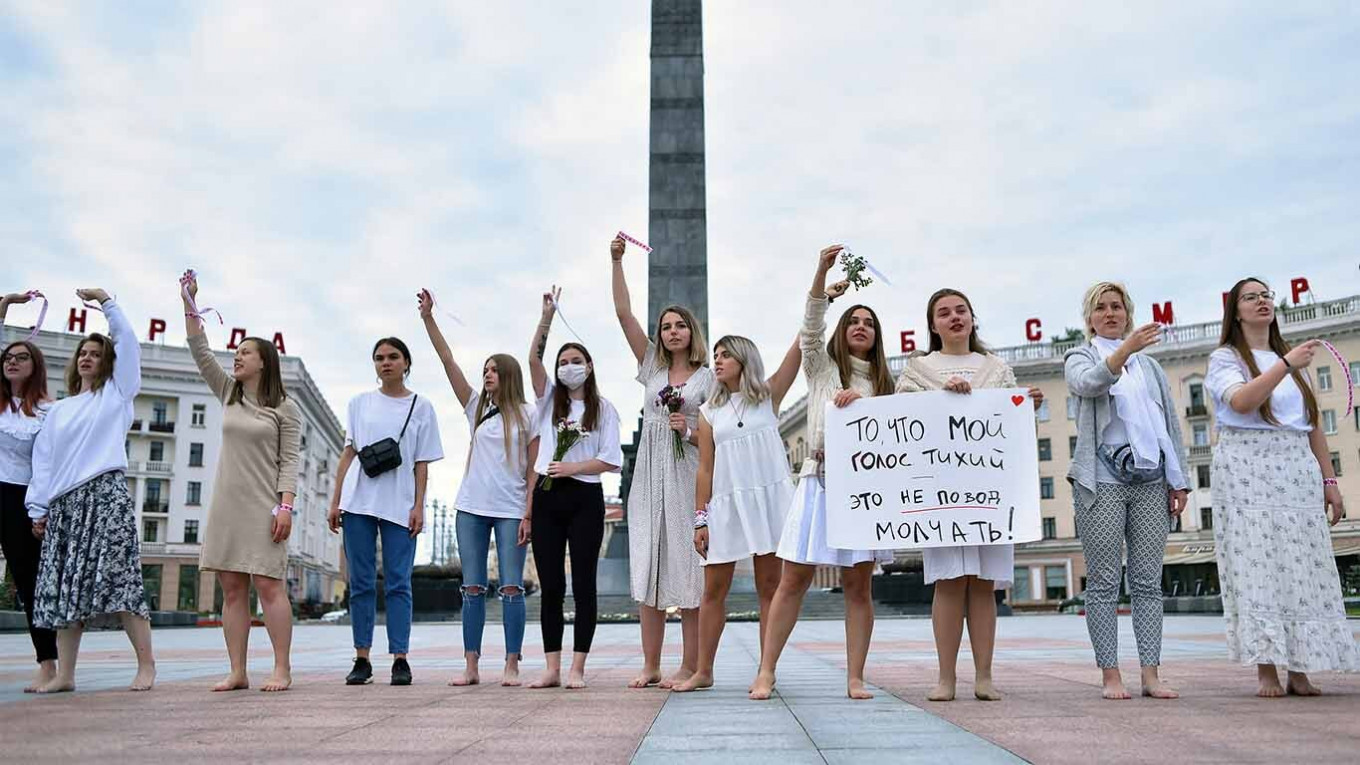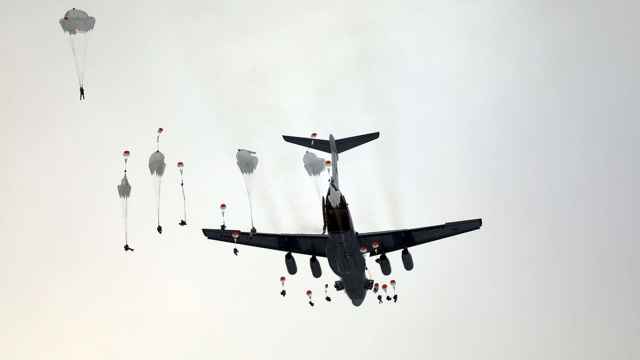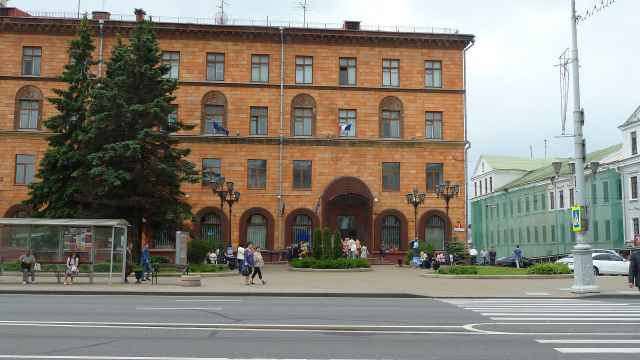Police in Belarus said Thursday they had detained hundreds more protesters as demonstrations continued against strongman leader Alexander Lukashenko's disputed re-election.
Four nights of unrest since Sunday's vote have seen thousands arrested, dozens wounded and two people dead as police used stun grenades, tear gas, water cannon and, in at least one case, live fire to disperse protesters.
Lukashenko's opponents accuse him of rigging Sunday's election to defeat his main rival, popular opposition candidate Svetlana Tikhanovskaya, who left the ex-Soviet country on Tuesday for neighbouring Lithuania.
Prominent Belarusians including Nobel Prize-winning author Svetlana Alexievich have condemned the violence and urged Lukashenko, who has ruled Belarus with an iron grip since 1994, to step down.
For the second day in a row on Thursday, dozens of women, many dressed in white and holding flowers, formed a human chain in the capital Minsk to condemn police violence.
The interior ministry said 700 more people had been arrested for taking part in illegal gatherings on Wednesday, bringing the total number detained since Sunday to more than 6,700.
The ministry said there had been fewer demonstrations Wednesday than on previous nights but that "the level of aggression towards members of law enforcement remains high."
It said 103 members of law enforcement had been injured in the unrest since Sunday, with 28 hospitalized.
Second death in unrest
After large-scale gatherings in Minsk and other cities on Sunday, the protests have become scattered and smaller as police cordoned off city centres and shut down public transport.
On Wednesday evening groups of flag-waving opposition supporters blocked roads in the capital's suburbs.
Riot police used rubber bullets and stun grenades to break up protests. They also patrolled residential areas, firing at vehicles and grabbing people hiding inside the entrances of blocks of flats, local media reported.
Protesters say police have become increasingly aggressive as demonstrations go on and on Wednesday the interior ministry said its forces had used firearms on a group of protesters armed with metal rods in the southwestern city of Brest.
Officials also confirmed the second death in the unrest, after police said a first protester died on Monday when an explosive device went off in his hand.
The Belarusian Investigative Committee, which probes major crimes, said in a statement that a 25-year-old man died after he was detained on Sunday for taking part in illegal protests in the southeastern city of Gomel and sentenced to 10 days in prison.
Investigators said the cause of death was unclear, though his mother told local media he had heart problems and had been out to see his girlfriend, not to take part in protests.
There have been widespread reports of police using indiscriminate violence against protesters and even passers-by.
In an interview published on Wednesday, Alexievich, winner of the 2015 Nobel Literature Prize for her work chronicling life under the Soviet regime, expressed outrage at the "inhumane, Satanic" actions of riot police and urged Lukashenko to go peacefully.
"Leave before it's too late, before you've thrown people into a terrible abyss, into the abyss of civil war," she told her long-term foe in an interview with Radio Free Europe/Radio Liberty.
'Unnecessary and excessive force'
Other prominent Belarusians have joined calls for the violence to end.
Belarus's four-time Olympic biathlon champion Darya Domracheva posted a call on her Instagram account urging riot police to "STOP THE VIOLENCE. Do not allow this unjust horror to continue on the streets."
She put out another post calling on "both sides" to stay calm.
Several prominent journalists and presenters with state media have also resigned in recent days in protest at events.
Western governments have criticized the violence, with UN High Commissioner for Human Rights Michelle Bachelet on Wednesday accusing Belarus of deploying "unnecessary and excessive force."
EU foreign ministers are set to discuss Belarus at an extraordinary meeting on Friday, with some in the bloc calling for the re-imposition of sanctions.
The protests broke out after authorities said Lukashenko won 80% of the vote in Sunday's election to secure a sixth term.
Lukashenko, 65, has dismissed the demonstrators as foreign-controlled "sheep." On Wednesday, he said they were "people with a criminal past who are now unemployed" and told them to get jobs.
The protest movement arose in support of Tikhanovskaya, a 37-year-old political novice who ran for president after potential opposition candidates including her husband were jailed.
The official results gave her 10% of the vote, but Tikhanovskaya said the election was rigged and claimed victory, demanding that Lukashenko hand over power.
She left for neighboring Lithuania on Tuesday as allies said she came under official pressure.
A Message from The Moscow Times:
Dear readers,
We are facing unprecedented challenges. Russia's Prosecutor General's Office has designated The Moscow Times as an "undesirable" organization, criminalizing our work and putting our staff at risk of prosecution. This follows our earlier unjust labeling as a "foreign agent."
These actions are direct attempts to silence independent journalism in Russia. The authorities claim our work "discredits the decisions of the Russian leadership." We see things differently: we strive to provide accurate, unbiased reporting on Russia.
We, the journalists of The Moscow Times, refuse to be silenced. But to continue our work, we need your help.
Your support, no matter how small, makes a world of difference. If you can, please support us monthly starting from just $2. It's quick to set up, and every contribution makes a significant impact.
By supporting The Moscow Times, you're defending open, independent journalism in the face of repression. Thank you for standing with us.
Remind me later.






